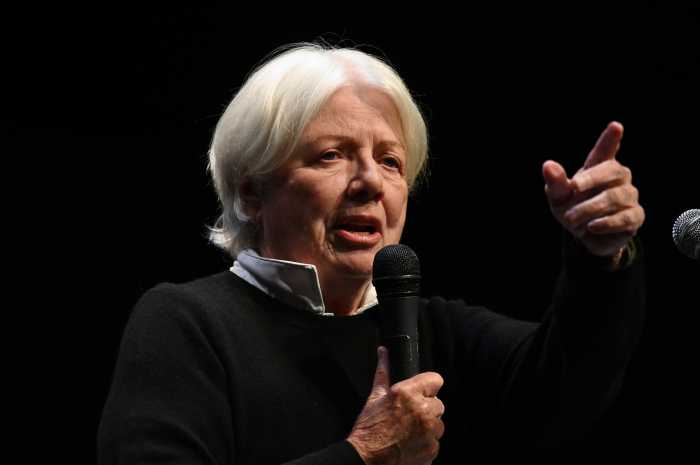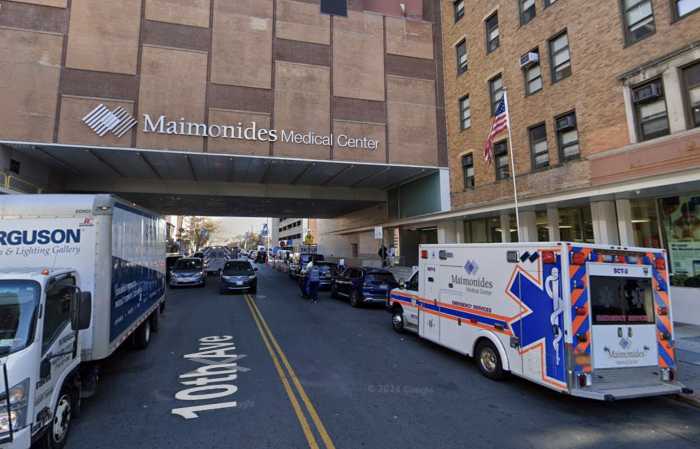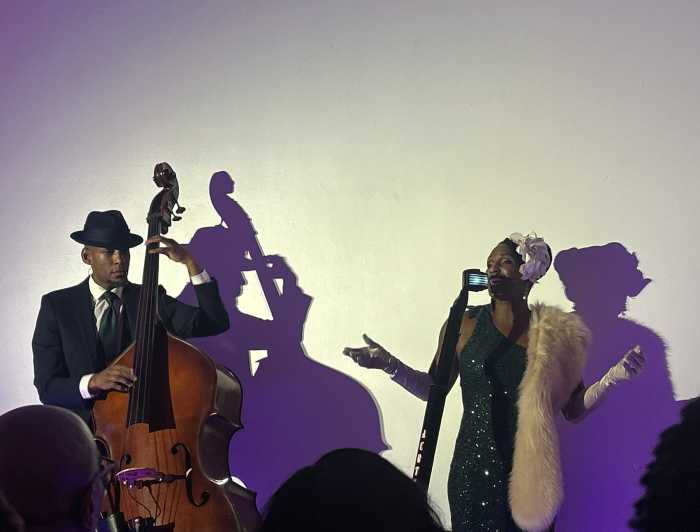BY DUNCAN OSBORNE | Speaking at the Lesbian, Gay Bisexual and Transgender Community Center, a senior New York City health department staffer told an audience of more than 100 that the agency has no plans to shutter city sex clubs and bathhouses.
“I want to set the record straight,” said Dr. M. Monica Sweeney, assistant commissioner for the Bureau of HIV/AIDS Prevention and Control, at the February 21 town meeting. “There have been no plans at all in the department of health to close commercial sex venues.”
A 2007 memo by Dr. Thomas Farley, a special advisor to Dr. Thomas R. Frieden, the city's health commissioner, presented four options for dealing with such businesses, ranging from continued inspections and enforcement of a 1985 state health code that bans oral, anal, and vaginal sex in businesses, even with a condom; to aggressively moving against these places; to closing them all; to regulating them by changing the code and allowing them to operate “under strict safe-sex rules” and other requirements.
Speaking at the LGBT Community Center, a senior New York City health department staffer told an audience of more than 100 that the agency has no plans to shutter city sex clubs and bathhouses.
At a January 11 meeting of community groups, health department staff, and sex club operators, Joshua Volle, a senior health department staffer, said the agency had already decided to close all city sex clubs and bathhouses. At the town meeting last week, Sweeney said no decision had been made.
“We are looking at the four options that are in that memo,” she said. “We are looking at what has been done in other cities.”
At least four cities – San Francisco, Denver, Los Angeles, and Cleveland – have implemented some type of regulatory scheme governing bathhouses or sex clubs. The community groups and some sex club operators have been pressing New York health officials to institute a similar regime here.
A major obstacle to any such regulation is the New York State health code, created by the Public Health Council, a body charged with adopting public health regulations. The code is enforced by local health departments throughout the state. It originally banned oral and anal sex. The council added vaginal sex in 1992. Gay and AIDS groups have long objected to the code, arguing that it contradicts safe sex messages and is also anti-gay.
Sweeney said that Dr. Isaac B. Weisfuse, the city health department's deputy commissioner for disease control, has met with state officials to discuss changing the code, though she did not say what resulted from that effort.
For community groups and activists, some of whom showed clear mistrust of the health department at the town meeting, changing the code is a bottom line requirement before they support any regulations.
“If there is any position that should be non-negotiable, it's the revocation of the state health code,” said Catherine Hanssens, executive director of the Center for HIV Law and Policy.
Since it was first promulgated, the city health department has used the code to shutter between 40 and 50 businesses, most of them serving gay men. Enforcement has ranged from aggressive to non-existent under different mayors and even during specific mayoral administrations.
As of 2005, Frieden had implemented an ongoing inspection program that racked up thousands of inspections of sex clubs, bathhouses, gay bars, gyms, and other businesses between the start of 2002 and early 2005, Gay City News learned in response to an open records request.
In January of this year, the newspaper requested all inspection records dated between the start of 2005 and the start of 2008. The health department is processing that request.
Missing from the town meeting was the rancor that accompanied debates years ago over sex club and bathhouse regulation when such plans were seen as effectively regulating gay men's bodies.
The LGBT Community Center is among those groups that want some form of regulation of these businesses and late in the evening, Dr. Barbara E. Warren, the Center's director for organizational development, planning and research, asked, “Will we be supported? Will we be attacked for trying to mediate people's bodies?”
Those questions, not intended to be rhetorical, drew no response.
E.J. Packer from the Comfort Zone and a woman who runs an S/M club, who did not give her name, were the only sex club operators known to be in the crowd.

































